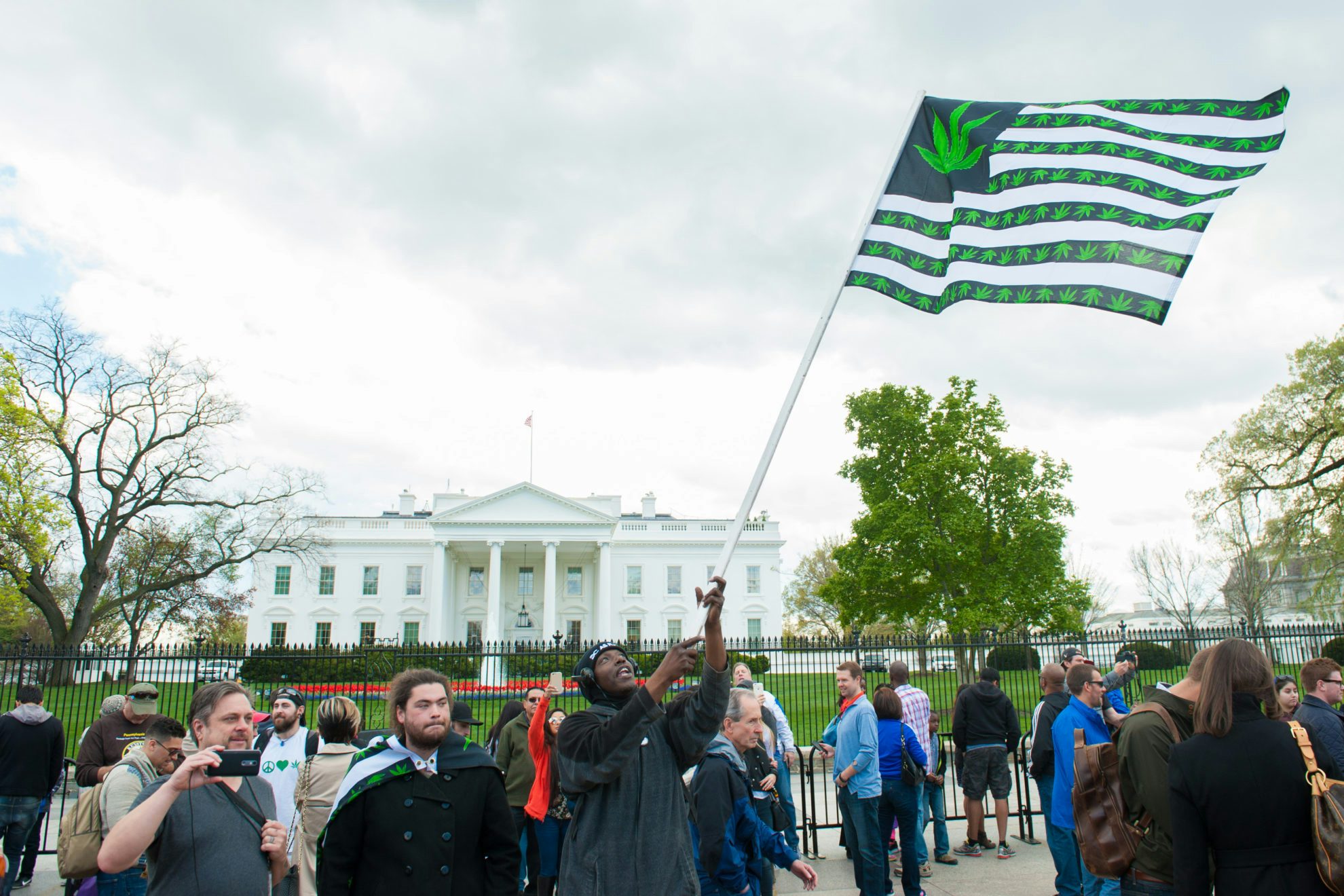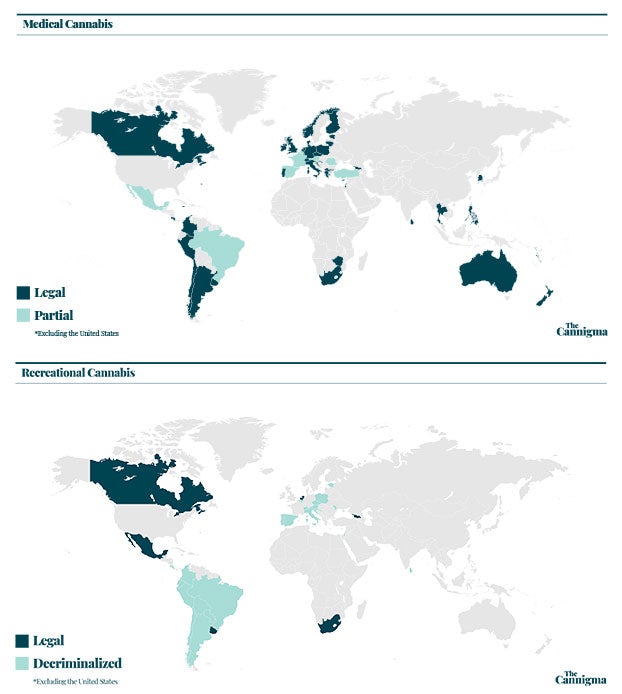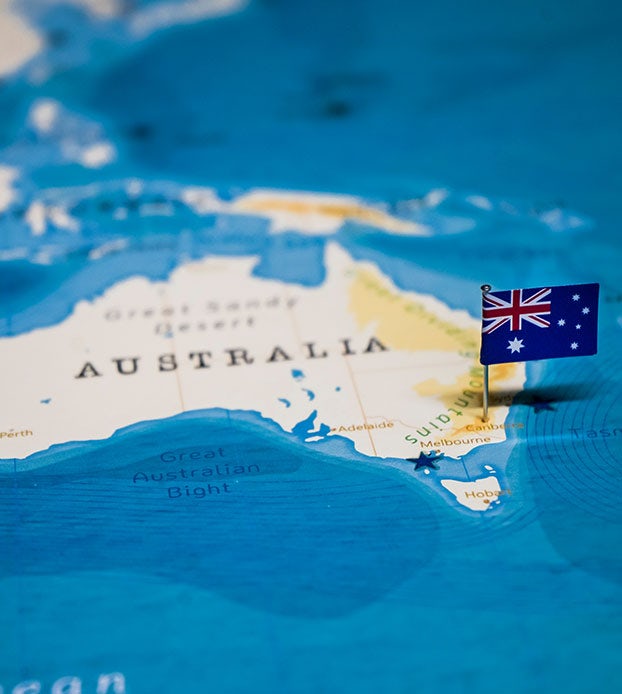Medical: legal
Recreational: illegal
New Zealand legalized medical cannabis in 2018 but recreational cannabis is still illegal, following the narrow defeat of a referendum in late 2020 that would have legalized adult-use cannabis in the country.
The country’s medical cannabis program is run by the Medical Cannabis Agency, but while doctors can prescribe cannabis-based medicines in New Zealand, the program has been criticized as having some of the strictest regulations in the world.
According to a 2020 report from the New Zealand Ministry of Health, 1 in 13 people over the age of 15 smoke cannabis at least once a month, and 10 percent of high school age students “thought it was okay to use cannabis.” The report also states that regardless of any changes to the country’s drug policies, there was a “substantial decline in arrests, prosecutions, and convictions for cannabis use,” between 1991 and 2008.
Though it was narrowly defeated in November, the Cannabis Legalisation and Control Bill would have been one of the most progressive legalization measures in the world, placing an emphasis on harm reduction and an evidence-based approach to cannabis.
New Zealand weed laws – what are the punishments?
New Zealand’s policies on marijuana are codified in the Misuse of Drugs Act 1975, which categorizes cannabis as a Schedule 2 Class B controlled drug. This includes “Cannabis preparations: that is, any preparation containing any tetrahydrocannabinols, including cannabis resin (commonly known as hashish) and cannabis oil (commonly known as hash oil), produced by subjecting cannabis plant material to any kind of processing (but does not include a CBD product).”
The law states that possession of any controlled drug can be punished by imprisonment of up to 6 months or a fine of up to $1,000, or both if a Class A drug is involved, and up to three months imprisonment and a $500 fine in the case of a Class B drug.
Cultivation of “any prohibited plant” can be punished by imprisonment of up to 7 years under the law. The simple possession of “seed or fruit of a prohibited plant” can be punished by one-year imprisonment and/or a $500 fine.
Under the Misuse of Drugs Act, the amount of cannabis that is considered “for supply” (and not simply personal use) is quantified as follows:
- Tetrahydrocannabinol (THC): 250 milligrams
- Any cannabis preparation: 5 grams or 100 cigarettes containing the drug
- Cannabis plant: 28 grams or 100 cigarettes containing the drug
The law states that a person who deals, produces, or supplies Class B drugs can face imprisonment of up to 14 years or up to 10 years for conspiring to help someone else commit the offense. Letting your house or motor vehicle be used to make, use, or carry Class B drugs can result in 7 years imprisonment. Possession of paraphernalia (including bongs and pipes) can result in a one-year sentence and/or a $500 fine.
The supply or manufacture of a Class A drug can be punished by life imprisonment. The act also states that if a person commits an offense for which there is no specified penalty, they can be liable to a sentence of up to 3 months imprisonment and/or a fine of up to $500.
How do New Zealanders generally view marijuana?
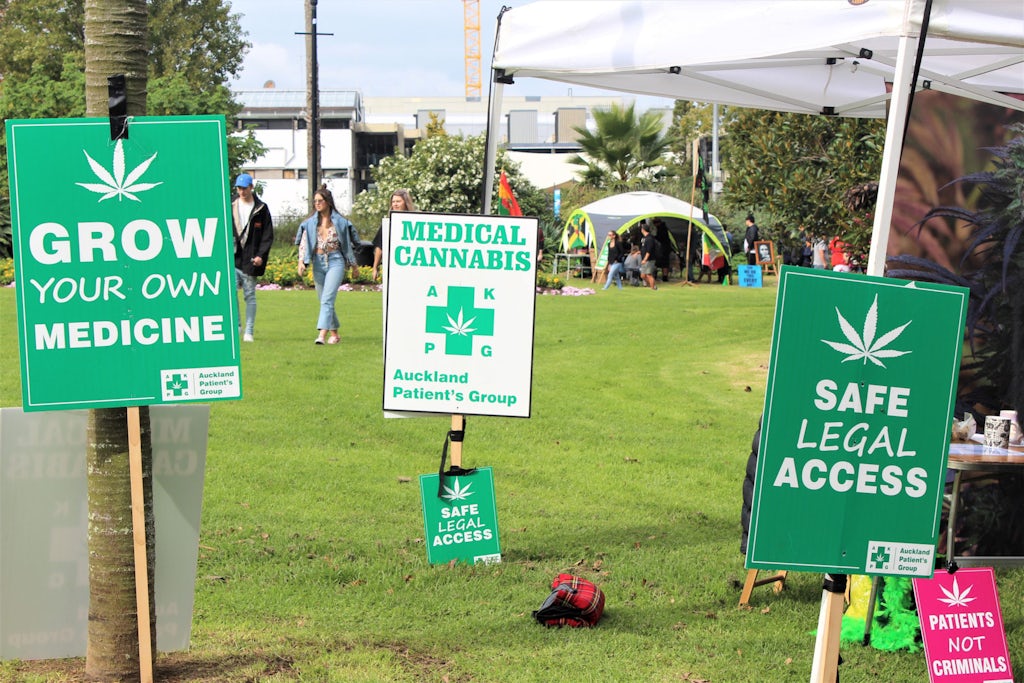
While New Zealand’s failed legalization referendum from late 2020 was voted down, the very progressive reforms it included were nonetheless approved by 48.4% of voters.
In addition, cannabis is the most widely-used drug in New Zealand, according to the New Zealand Drug Foundation. In addition, a 2011 study found that by age 21, 80% of young people in New Zealand will have used cannabis on at least one occasion, with 10% “developing a pattern of heavy dependent use.”
A study published in the New Zealand Medical Journal in May 2020 found that 80% of respondents expressed support for medicinal cannabis, 47.8 supported decriminalization, and 26.8% expressed support for the legalization of adult-use cannabis.
In addition, while New Zealand’s medical cannabis program is highly restrictive, NORML New Zealand stated in 2016 that 1 in 20 New Zealanders are currently using medical cannabis.
What New Zealand’s law permits for medical patients
Approved patients can be prescribed any product that has been verified as meeting the quality standards of the Medical Cannabis Agency, but so far only the following products have been approved:
- SubDrops CBD100
- SubDrops CBD25
- Tilray FS Oral Solution THC 25
- Tilray FS Oral Solution THC 10 CBD 10
- Tilray P Oral Solution CBD 100
- Tilray P Oral Solution CBD 25
The cannabis-based medicine Sativex, frequently prescribed to Multiple Sclerosis patients, has received consent for disturbing as well.
The Ministry of Health states that just because a product is approved does not mean that it is currently available in New Zealand. In addition, since October 1, 2021 the law no longer allows suppliers to import or supply products that are not verified against the medicinal cannabis minimum quality standards, but doctors can prescribe and import CBD products directly for their patients.
Medical cannabis patients are not allowed to import or sell vaporizers unless they are approved as medical devices by an overseas regulator.
The law does not allow any form of medicinal cannabis that is meant to be smoked, or cultivated for personal use by medical cannabis patients.
Is CBD illegal in New Zealand?
CBD products are legal and available in New Zealand if prescribed by a physician, as long as they have no more than 2% THC.
Under the Misuse of Drugs Act, cannabis products are legal if “the esters and ethers naturally occur in cannabis and are not capable of inducing more than a minor psychoactive effect, by any means, in a person.”
In October 2021, New Zealand’s first locally-made CBD products became available under prescription. The news came just days after a grace period ended which had allowed medical cannabis patients to legally access 13 CBD products which became illegal at the end of the grace period.
Who qualifies for medical cannabis in New Zealand if any, and cost/access
To access medical cannabis in New Zealand, a patient must receive a prescription from a doctor registered to practice medicine in the country.
There is no setlist of health conditions that must be met.
One New Zealand outlet reported in 2020 that most medicinal cannabis products in the country cost $200 to $300 for one to two months’ supply.
In 2019, the Drug Foundation of New Zealand quoted a general practitioner who stated that most cannabis patients pay around $15/day for CBD. One estimate from 2020 put the cost of Sativex at around $800-$1200 per month, and a 30ml solution of 100mg/100ml CBD at $200-$300 per month.
Can you grow your own weed?
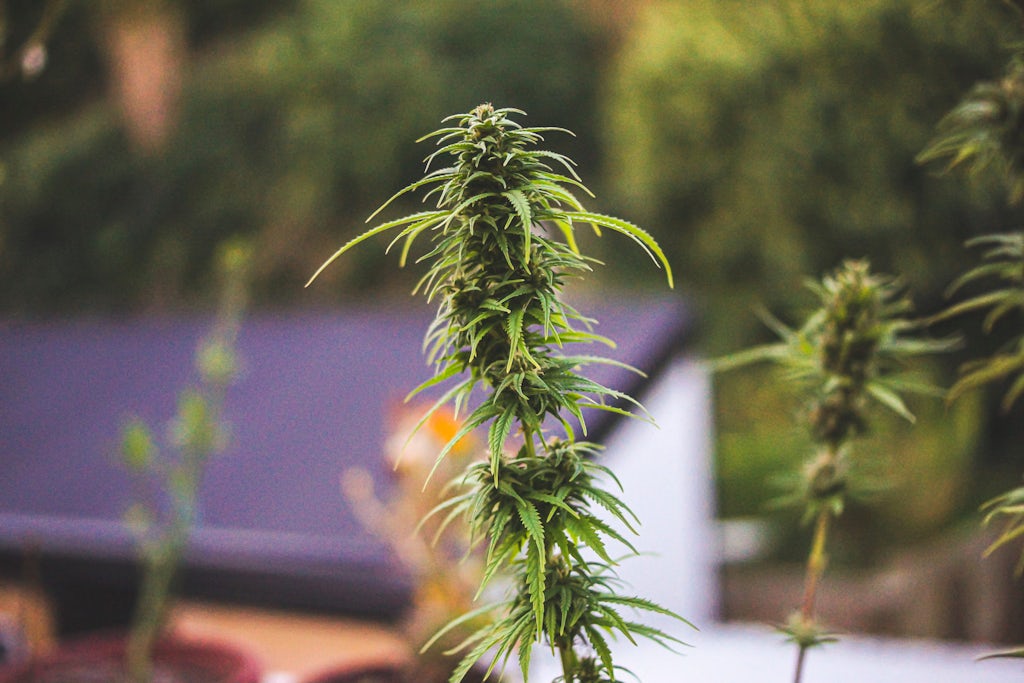
New Zealand does not allow the cultivation of cannabis for personal use, even for holders of a medical marijuana prescription. As mentioned above, cultivation of cannabis can be punished by imprisonment of up to 7 years under the law and the possession of a seed of a prohibited plant can be punished by one-year imprisonment and/or a $500 fine.
Visiting New Zealand – can you buy or bring marijuana products?
New Zealand law does allow travelers to bring a medicinal cannabis product into the country if it meets the following requirements:
- The product has been prescribed to you by a doctor
- You have a copy of the prescription or a letter from your doctor stating that you are being treated with the product
- You declare the product on your passenger arrival card
- You carry the product in its original container, and
- You are bringing no more than a 3-month supply of a CBD product or a 1-month supply of any other medicinal cannabis product.
The Ministry of Health does advise anyone who is unclear about the legality of bringing their medicine into the country should contact the New Zealand Customs Service here.
Sign up for bi-weekly updates, packed full of cannabis education, recipes, and tips. Your inbox will love it.

 Shop
Shop Support
Support

